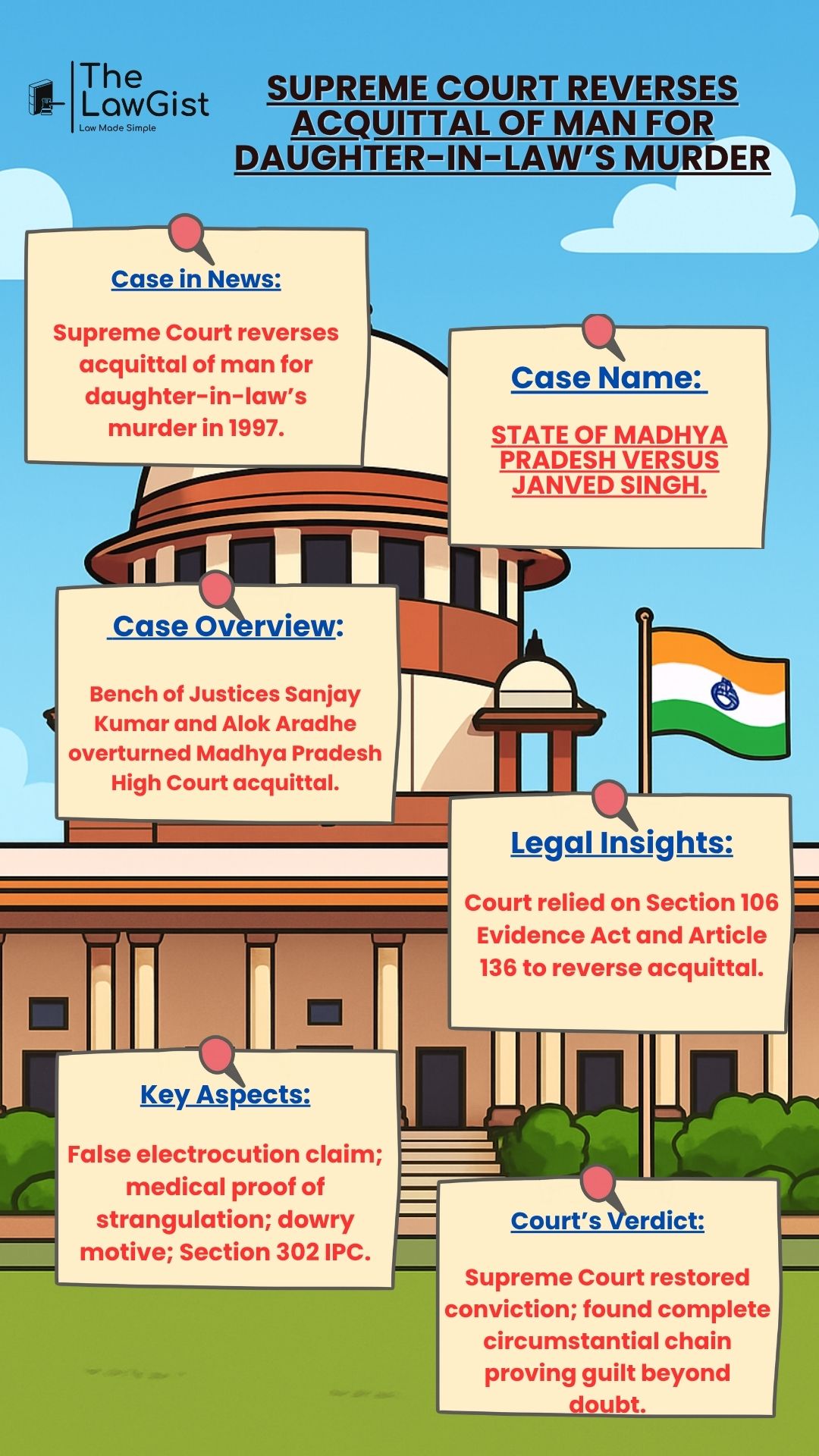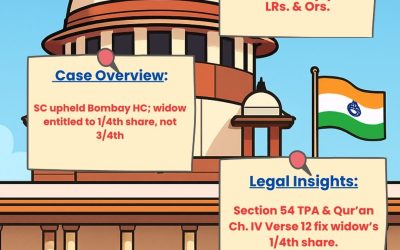
Supreme Court restores conviction of father-in-law for daughter-in-law’s 1997 murder, overturning Madhya Pradesh High Court’s acquittal based on complete circumstantial evidence and Section 106 burden.
Case in NewsSupreme Court reverses acquittal of man for daughter-in-law’s murder after finding complete chain of circumstantial evidence proving guilt beyond reasonable doubt . |
Discover powerful Latin Maxims and simplify complex legal terms in seconds.
Case Overview
Case Name: State Of Madhya Pradesh vs. Janved Singh
A Bench of the Supreme Court of India comprising Justice Sanjay Kumar and Justice Alok Aradhe set aside the Madhya Pradesh High Court’s Gwalior Bench judgment acquitting a father-in-law accused in the 1997 murder of his daughter-in-law . The deceased was found dead under suspicious circumstances inside her matrimonial home . While the accused claimed accidental electrocution, medical evidence confirmed death by strangulation . The Sessions Court had earlier convicted him for murder, cruelty, and destruction of evidence, but the High Court had acquitted him in 2010 .
Step into the world of justice with Courtroom Chronicles
Key Aspects
Before the Supreme Court, the State argued that the acquittal was based on misappreciation of evidence . The Court meticulously analyzed the chain of circumstances to establish guilt .
- The deceased died inside the house controlled by the accused .
- Medical reports confirmed strangulation and post-mortem burn marks .
- The accused filed a false FIR of electrocution to mislead investigators .
- Evidence of dowry demands and strained relations strengthened the prosecution’s case .
Legal Insights
The Court examined statutory provisions relevant to circumstantial and burden-of-proof cases .
- Section 106 of the Indian Evidence Act, 1872 – places the burden on the accused to explain facts “especially within his knowledge,” such as incidents inside his own home .
- Section 302 of the Indian Penal Code, 1860 – defines the punishment for murder .
- The Court reaffirmed that misappreciation of evidence can justify reversing an acquittal under appellate powers .
- It emphasized that false explanations and deliberate misleading acts form key links in circumstantial evidence cases .
Court’s Verdict
The Supreme Court of India restored the trial court’s conviction, holding that the prosecution proved guilt beyond reasonable doubt . The appeal filed by the State of Madhya Pradesh was allowed and the murder acquittal overturned .
Source – Supreme Court of India
Read also – Indian Penal Code, 1860
The LawGist ensures exam success with quality notes—TPL, Current Affairs, Recent Judgments, and more. Backed by trusted resources and videos, The LawGist is every aspirant’s first choice. Discover more at thelawgist.org







